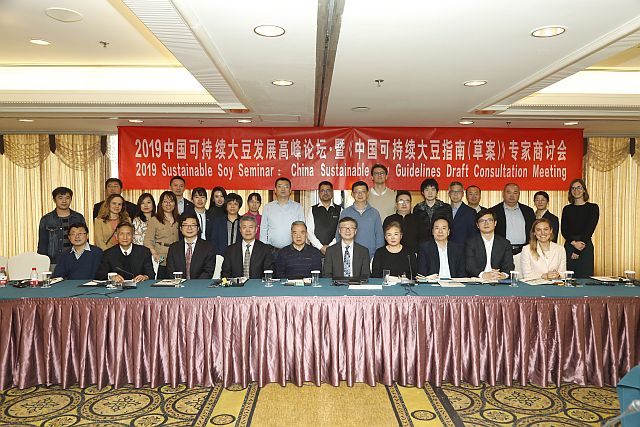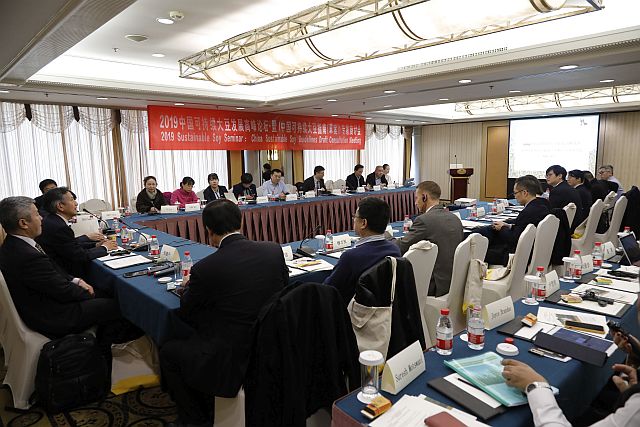Stakeholders gathered in Beijing to discuss and review the draft guidelines for sustainable production and sourcing of soy at a meeting on 1 November 2019. The recommendations incorporate good agricultural and business practices, long-term economic viability, and environmental and social responsibility.

Stakeholders in Beijing for the consultation meeting on the draft China Sustainable Soy Guidelines
The guidelines are being developed with support from the Norwegian Agency for Development Cooperation (NORAD) and the Moore Foundation. Compiled following one-on-one consultation and joint efforts by the different stakeholders, the guidelines’ priorities are:
- continuous improvement and transparency in the soy supply chain
- preventing deforestation and land-use change
- protecting biodiversity
Promoting green development
At the meeting, Hongyuan Song, Director of the Research Centre for Rural Economy under the Ministry of Agriculture and Rural Affairs, highlighted the Ministry’s green development goals to increase production efficiency and quality and to promote green consumption.
The need to transition to more sustainable consumption habits was underlined by Jianping Zhang, director of the International Cooperation Centre under the Ministry of Commerce. He also talked about the role technology, innovation and the promotion of high quality can play to increase sustainability and transparency in trade.
Preventing deforestation
Christoffer Gronstad, environmental counselor at the Embassy of Norway in Beijing, emphasized his country’s commitment to forest protection worldwide and the need to combat deforestation while sustaining the livelihoods of communities that depend on the soy supply chain.
Stakeholders share feedback on the guidelines
Enabling a sustainable soy industry
Quoting a Chinese idiom, ‘you can’t kill the chicken to get the egg’, Denggao Liu, senior agronomist and a former president of the China Soybean Industry Association, emphasized that the industry cannot continue to consume without limits, and must bear the responsibility for sustainability.
Companies are taking this message on board. Yunmei Li, general manager of the Strategy department at soy processor Jiusan Group, talked about the company’s traceability system for domestic production, having compiled the company’s first corporate social responsibility report in 2018.
Wei Peng, head of sustainability at COFCO, a Chinese state-owned food processing company, described how COFCO International is addressing deforestation and habitat loss, and the rationale for having a sound sustainability policy in place: reputation, risk mitigation and shareholder requirements.
We hope to continue working with partners to contribute to national food security and reduce deforestation”- Rusong Li, Solidaridad China
Drawing on global supply chain experience
In 2018, fully 74% of China’s soy imports came from Brazil. At the meeting, representatives from major players in the global supply chain including COFCO International, Unilever, the US Soy Export Council, and Solidaridad Brazil shared insights on best practices.
“Brazil needs to continue to work towards increasing land and water use efficiency to better mitigate against climate change and maintain biodiversity,” said Joyce Brandão, programme manager for Solidaridad Brazil.
Rusong Li, Solidaridad China’s country manager, thanked the participants for their contributions and said, “We hope to continue working with local and international partners to contribute to China’s pursuit of national food security and to global efforts to reduce deforestation caused by soy.”
> Read more on Solidaridad’s work in soy

